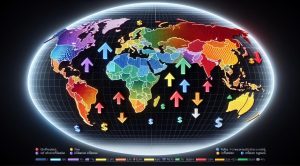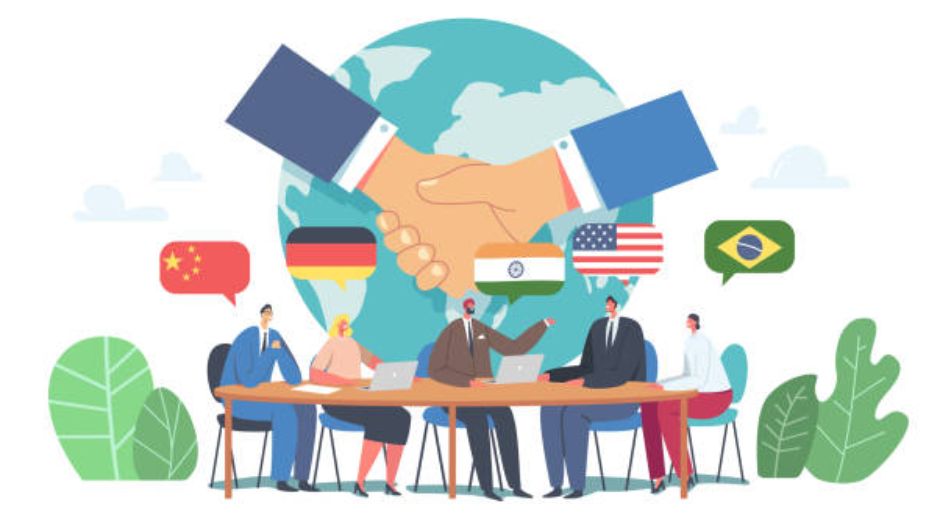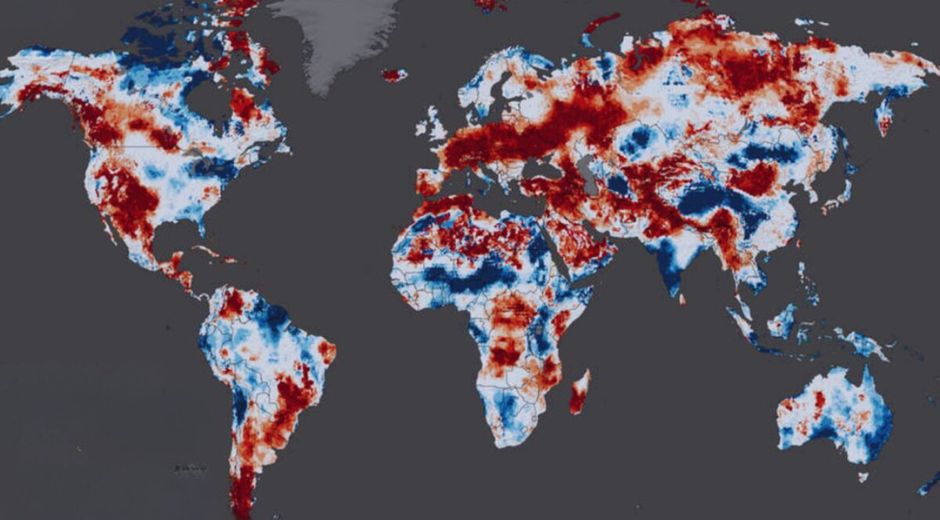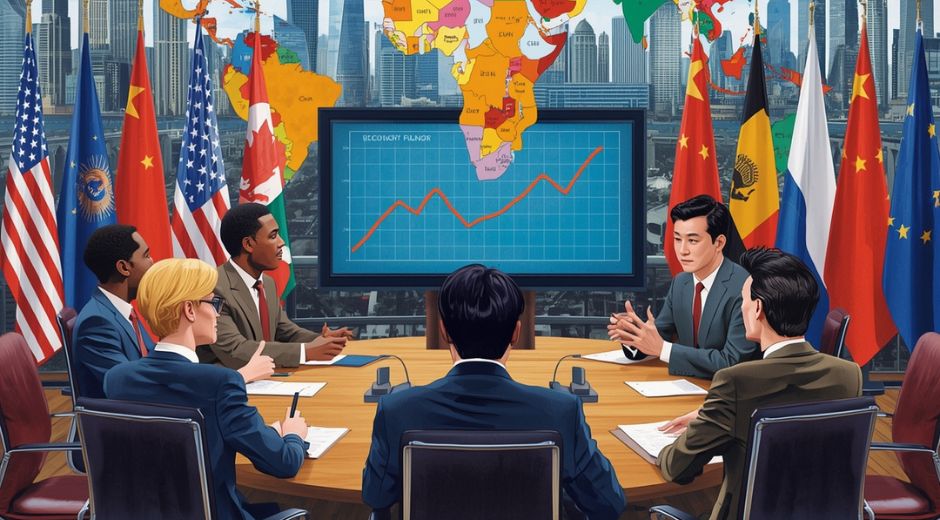7 International Policies That Could Change the World
7 International Policies That Could Change the World
In 2025, the world stands at a crossroads. Global challenges like climate change, economic inequality, digital regulation, and geopolitical tensions are reshaping international priorities. Governments and international organizations are responding with bold policies that could fundamentally transform economies, societies, and governance structures.
This article explores seven international policies poised to create lasting global impact. From trade reforms and climate commitments to tech regulations and humanitarian initiatives, understanding these policies helps businesses, policymakers, and citizens anticipate the future of our interconnected world.
1. Global Carbon Pricing Initiatives
Climate change remains one of the most urgent global challenges. International efforts to implement carbon pricing mechanisms are gaining momentum.
Key Developments:
-
Emissions Trading Systems (ETS) and carbon taxes in major economies like the EU, Canada, and Japan.
-
Initiatives under the UN’s Framework Convention on Climate Change encouraging nations to adopt market-based carbon reduction strategies.
-
Increasing adoption of cross-border carbon credit trading to incentivize emission reductions globally.
Impact:
-
Encourages industries to reduce greenhouse gas emissions.
-
Spurs innovation in renewable energy, clean tech, and sustainable transportation.
-
Alters global trade patterns by factoring carbon costs into manufacturing and exports.
Why It Matters:
Global carbon pricing creates economic incentives for sustainability, encouraging corporations and governments to adopt cleaner practices while mitigating climate risks.
2. International Digital Tax Agreements
The digital economy has grown faster than international tax regulations. Countries are adopting policies to tax multinational tech giants effectively.
Key Developments:
-
OECD’s global minimum corporate tax agreement targeting multinational digital corporations.
-
Digital service taxes applied by countries like France, the UK, and India.
-
Efforts to harmonize taxation rules to prevent profit-shifting and tax base erosion.
Impact:
-
Creates fairer competition between domestic and international businesses.
-
Increases government revenues to fund public services.
-
Encourages transparency in multinational corporate operations.
Why It Matters:
As digital platforms dominate global commerce, tax reforms ensure equitable economic participation and provide resources for sustainable development.
3. Global Health Security Regulations
The COVID-19 pandemic exposed vulnerabilities in global health infrastructure. New international policies aim to strengthen preparedness, surveillance, and equitable vaccine distribution.
Key Developments:
-
WHO-led international agreements on pandemic preparedness and response.
-
Strengthened regulations for sharing pathogen data, research, and medical supplies.
-
Global initiatives to ensure fair access to vaccines, therapeutics, and diagnostics.
Impact:
-
Reduces the risk of future pandemics spreading uncontrollably.
-
Strengthens cooperation between nations on medical research and public health strategies.
-
Promotes equity in access to life-saving medical interventions.
Why It Matters:
Health security policies are critical for global stability, ensuring societies can respond quickly and effectively to biological threats.
4. Trade Liberalization and Reform Policies
Trade remains the backbone of the global economy. International agreements and policies are evolving to address both market access and social responsibility.
Key Developments:
-
Modernization of World Trade Organization (WTO) rules to address digital trade, intellectual property, and sustainability.
-
Regional trade agreements like the Comprehensive and Progressive Agreement for Trans-Pacific Partnership (CPTPP) and the African Continental Free Trade Area (AfCFTA).
-
Policies promoting fair labor standards and environmental compliance in trade deals.
Impact:
-
Expands market access for businesses and entrepreneurs.
-
Encourages sustainable and ethical supply chains.
-
Reduces trade barriers and promotes global economic integration.
Why It Matters:
Trade policies shape economic growth, development, and international cooperation, influencing everything from consumer prices to geopolitical alliances.
5. Artificial Intelligence and Digital Governance Policies
AI and digital technology are reshaping economies and societies. Countries are establishing international standards and regulations to govern AI ethically and responsibly.
Key Developments:
-
OECD Principles on Artificial Intelligence promoting transparency, fairness, and accountability.
-
EU’s Artificial Intelligence Act regulating high-risk AI applications.
-
International collaborations on AI ethics, data privacy, and cybersecurity.
Impact:
-
Promotes ethical AI deployment across industries.
-
Protects citizens’ privacy and mitigates bias in automated decision-making.
-
Facilitates cross-border cooperation on technology standards.
Why It Matters:
AI governance policies ensure that technological advancement aligns with societal values, preventing misuse while fostering innovation.
6. Global Migration and Refugee Policies
Migration and refugee flows are rising due to conflicts, climate change, and economic disparities. International policies are evolving to address humanitarian needs and integration strategies.
Key Developments:
-
United Nations Global Compact for Migration encouraging coordinated policy approaches.
-
Regional agreements for refugee resettlement, protection, and humanitarian aid.
-
Policies supporting climate migrants and displacement caused by environmental changes.
Impact:
-
Ensures protection of human rights for vulnerable populations.
-
Promotes social cohesion and integration in host countries.
-
Encourages international cooperation to address root causes of displacement.
Why It Matters:
Effective migration policies balance humanitarian responsibilities with economic and social stability, influencing global security and development.
7. Global Financial Regulation and Anti-Money Laundering Policies
The international financial system is under scrutiny, and new regulations aim to combat illicit financial flows and increase transparency.
Key Developments:
-
FATF (Financial Action Task Force) recommendations for anti-money laundering (AML) and counter-terrorist financing (CTF).
-
International efforts to regulate cryptocurrencies and digital assets.
-
Harmonization of banking standards to prevent systemic risks.
Impact:
-
Reduces corruption and illegal financial activities.
-
Strengthens investor confidence in global markets.
-
Supports equitable economic development by maintaining financial integrity.
Why It Matters:
Financial regulation policies protect economies, promote transparency, and prevent systemic crises, making them essential for global stability.
Conclusion: The Power of Policy in Shaping the Future
The seven international policies discussed — from carbon pricing and AI governance to global health security and financial regulation — demonstrate how strategic policymaking can reshape the world.
These policies not only address immediate challenges but also set long-term frameworks for sustainable development, innovation, and cooperation. Governments, businesses, and individuals must stay informed and engaged, as the decisions made today will define global trajectories for decades.
The Pulse of Sport

How Algorithm Governance Is Reshaping Public Policy
How Algorithm Governance Is Reshaping Public Policy

Global Inflation Signals, The Indicators Economists Watch Before Markets Move
Global Inflation Signals, The Indicators Economists Watch Before Markets Move

Smart City Surveillance, Safety Gains and the Privacy Tradeoff
Smart City Surveillance, Safety Gains and the Privacy Tradeoff

Ethical Newsrooms, How Media Standards Are Being Rebuilt
Ethical Newsrooms, How Media Standards Are Being Rebuilt

Space Economy Jobs, New Careers Emerging from the Orbital Boom
Space Economy Jobs, New Careers Emerging from the Orbital Boom

Telemedicine Regulations, What’s Changing for Patients and Providers
Telemedicine Regulations, What’s Changing for Patients and Providers

Fact Checking AI, Can Algorithms Reduce Misinformation at Scale
Fact Checking AI, Can Algorithms Reduce Misinformation at Scale













